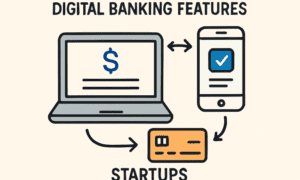Are you feeling overwhelmed by the world of credit cards? Don’t worry, you’re not alone. With so many options and terms to decipher, it’s easy to get lost in a sea of confusion. But fear not! In this blog post, we’re going back to the basics with Credit Card 101. Whether you’re new to the plastic game or just need a refresher course, we’ll break down everything you need to know about understanding credit cards and their endless uses.
Introduction
Credit cards are a widely used financial tool that allows individuals to make purchases on credit, which means they can buy goods or services without having to pay for them immediately. Essentially, credit cards act as a form of loan from the issuing bank, where the cardholder can borrow money up to a certain limit and repay it later.
What is a credit card?
A credit card is a small plastic card issued by a bank or financial institution that allows you to borrow money for purchases. It works like a loan, where the issuer lends you the money and you pay it back at a later date with interest. Credit cards have become an essential part of our daily lives, making it easier to make purchases online and in-store without carrying large amounts of cash.
Credit cards have a unique 16-digit number on the front, along with your name, expiration date, and security code. This information is required when making online purchases or using your card at any point-of-sale terminal. Most credit cards also come with an embedded microchip for added security.
The amount of credit available to you depends on your credit limit, which is determined by the card issuer based on your credit history and income. The higher your income and the better your credit score, the higher your credit limit will be. Your credit score reflects how responsible you are with managing debt and paying back loans.
Benefits of Having a Credit Card
1.Convenient Payment Method: One of the main benefits of having a credit card is the convenience it offers when making purchases. With a credit card, you no longer have to carry around large amounts of cash or worry about finding an ATM when you need to make a purchase. Simply swipe your credit card, and the payment is made instantly.
2. Builds Your Credit Score: Another major advantage of having a credit card is that it helps build your credit score. A good credit score is essential for obtaining loans, mortgages, and even renting an apartment. By using your credit card responsibly and making timely payments, you can improve your credit score over time.
3. Emergency Fund: Having a credit card can also serve as an emergency fund in times of unexpected financial needs. Whether it’s a medical emergency or car repairs, having a credit card with available funds can provide peace of mind knowing that you have access to funds when needed.
4. Rewards and Perks: Many credit cards offer rewards programs and perks such as cashback, travel points, or discounts on specific purchases. By using your credit card for everyday expenses like groceries or gas, you can accumulate these rewards, which can later be redeemed for various benefits.
5. Protection Against Fraudulent Purchases: Most reputable credit cards come with fraud protection measures that safeguard against any unauthorized transactions made on your account. This provides additional security compared to using cash or debit cards, where unauthorized transactions cannot be reversed easily.
How to Choose the Right Credit Card for You
Choosing the right credit card is an important decision that can greatly impact your financial well-being. With so many options available, it can be overwhelming to determine which one is best suited for you. In this section, we will discuss the key factors to consider when choosing a credit card and provide tips on how to make an informed decision.
1. Understand your spending habits.
The first step in selecting a credit card is understanding your spending habits. Take some time to analyze your monthly expenses and identify where you spend the most money. This will help you determine which types of rewards or benefits would be most beneficial for you.
For example, if you frequently travel, a credit card with travel rewards may be a good option, as it offers points or miles for every dollar spent that can be redeemed for flights, hotel stays, or car rentals. On the other hand, if you typically use your credit card for everyday purchases such as groceries and gas, a cashback credit card may be more suitable.
2. Consider your credit score.
Your credit score plays a significant role in determining whether you qualify for certain credit cards and what interest rate you will receive. Before applying for a new card, check your credit score and ensure it is within the range required by the issuer.
If your score is below average, focus on improving it before applying for a new card. Some issuers offer secured credit cards specifically designed to help individuals build or rebuild their credit history.
3. Compare interest rates and fees.
Interest rates and fees are important factors to consider when choosing a credit card. The interest rate, also known as the annual percentage rate (APR), is the cost of borrowing money on your card. It is typically applied to any outstanding balance on your card, and a lower APR means you will pay less in interest.
Fees can also add up quickly and impact the overall cost of using a credit card. Some common fees include annual fees, late payment fees, and foreign transaction fees. Make sure to read the fine print and understand all potential fees associated with a credit card before applying.
4. Look into rewards and benefits.
Many credit cards offer rewards or benefits that can help you save money or earn valuable perks. These may include cashback on purchases, travel rewards, statement credits for specific purchases, or access to airport lounges.
Consider what type of rewards or benefits would be most useful for you, and choose a credit card that aligns with your preferences. Keep in mind that some rewards may come with restrictions or limitations, so make sure to read the terms carefully.
Conclusion
Understanding the basics of credit cards and their uses can greatly benefit individuals in managing their finances. From building a good credit score to earning rewards and protection against fraud, credit cards offer convenience and flexibility when used responsibly. It is important to always read the terms and conditions before applying for a card and to use it wisely to avoid accumulating debt. By following these tips, you can make the most of your credit card while maintaining financial stability.



































